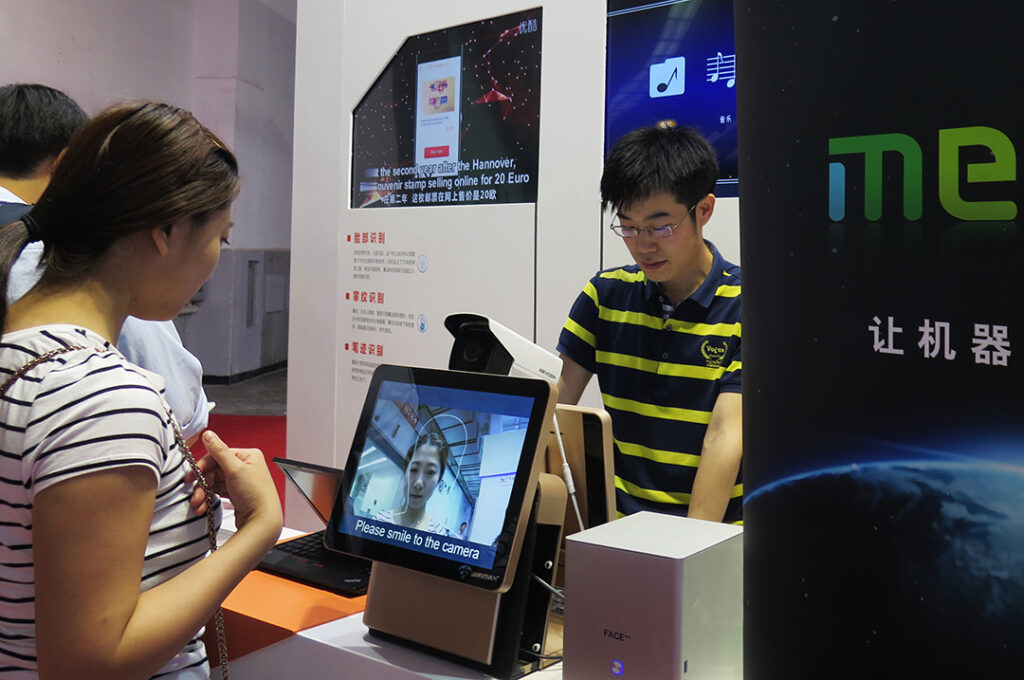ADF STAFF
Across Africa, countries have eagerly adopted Chinese technology to build communications networks and monitor public spaces. However, the spread of China’s artificial intelligence (AI) systems might pose a risk to nations’ national security and sovereignty.
In 2017, for example, African Union officials discovered that sensitive data from servers in their new Chinese-built headquarters was being routed in the middle of the night from Addis Ababa, Ethiopia, to servers in Shanghai, China. The data dumps had taken place every night from the time the headquarters opened in 2012, prompting accusations of spying.
China has deployed technological improvements along with bridges, roads and railways as part of its Belt and Road Initiative. Much of the work is funded by loans from the Export-Import Bank of China or similar state-linked lenders.
Over the past decade, Chinese companies have built nearly 200 government buildings across Africa, including presidential palaces, ministries and parliament buildings. China Telecom plans to lay 150,000 kilometers of fiber optic cables across 48 African countries.
Huawei telecommunications has had a hand in nearly half the Chinese technology projects in Africa. It built nearly three-quarters of the 4G wireless networks across Africa and more than a dozen national communications networks. It also has built data centers in Ghana, Kenya, Mali and a half-dozen other locations. The Chinese-built data center in Djibouti connects to six submarine cables coming into the continent from Asia.
Beyond that, Chinese-made cellphones have replaced Samsung phones as the dominant hand-held technology on the continent.
“The extent of Chinese technological penetration of the African continent is encompassing,” Willem Gravett, an associate professor of law at South Africa’s University of Pretoria, wrote recently in the African Human Rights Law Journal. “Vast numbers of the population rely fundamentally on Chinese companies for their telecommunications and digital services.”
China’s Smart Cities technology package has been put into place in at least eight countries, including Benin, Morocco, Rwanda and Zambia. The system includes hundreds of closed-circuit cameras that monitor public spaces and let governments track their citizens’ movements.
Huawei’s offers to provide technical support for its AI gives it the ability to collect data about the movement of people and goods through its client cities.
African nations also appear to be serving as a training ground to teach Chinese artificial intelligence programs to read non-white faces. In 2020, the Ugandan government used Chinese facial recognition technology to track and arrest more than 800 people suspected of supporting opposition presidential candidate Bobi Wine.
In Angola, China’s Percent Corp. developed an artificial intelligence system that records every citizen’s life stages from cradle to grave, along with fingerprints and facial features.
“The system’s ostensible purpose is to manage population resources, but clearly has great potential in terms of surveillance and as a tool for repression,” Gravett wrote.
Gravett and other human rights advocates on the continent worry that China’s technological footprint is encouraging the continent’s leaders to clamp down on free expression and access to information.
Nigeria, Tanzania and Zimbabwe have passed laws aimed at stifling dissent modeled on Chinese laws. Benin, Uganda and Zambia have imposed taxes on social media users to reduce use of internet platforms such as Facebook, Twitter and WhatsApp. Tanzania taxes bloggers and YouTube users.
“The rapid expansion across Africa of Chinese technology warrants vigilance on the part of democrats,” Gravett wrote. “This development raises the specter that the Chinese attitude to state power becomes the dominant model to be followed in implementing security and surveillance in Africa.”

